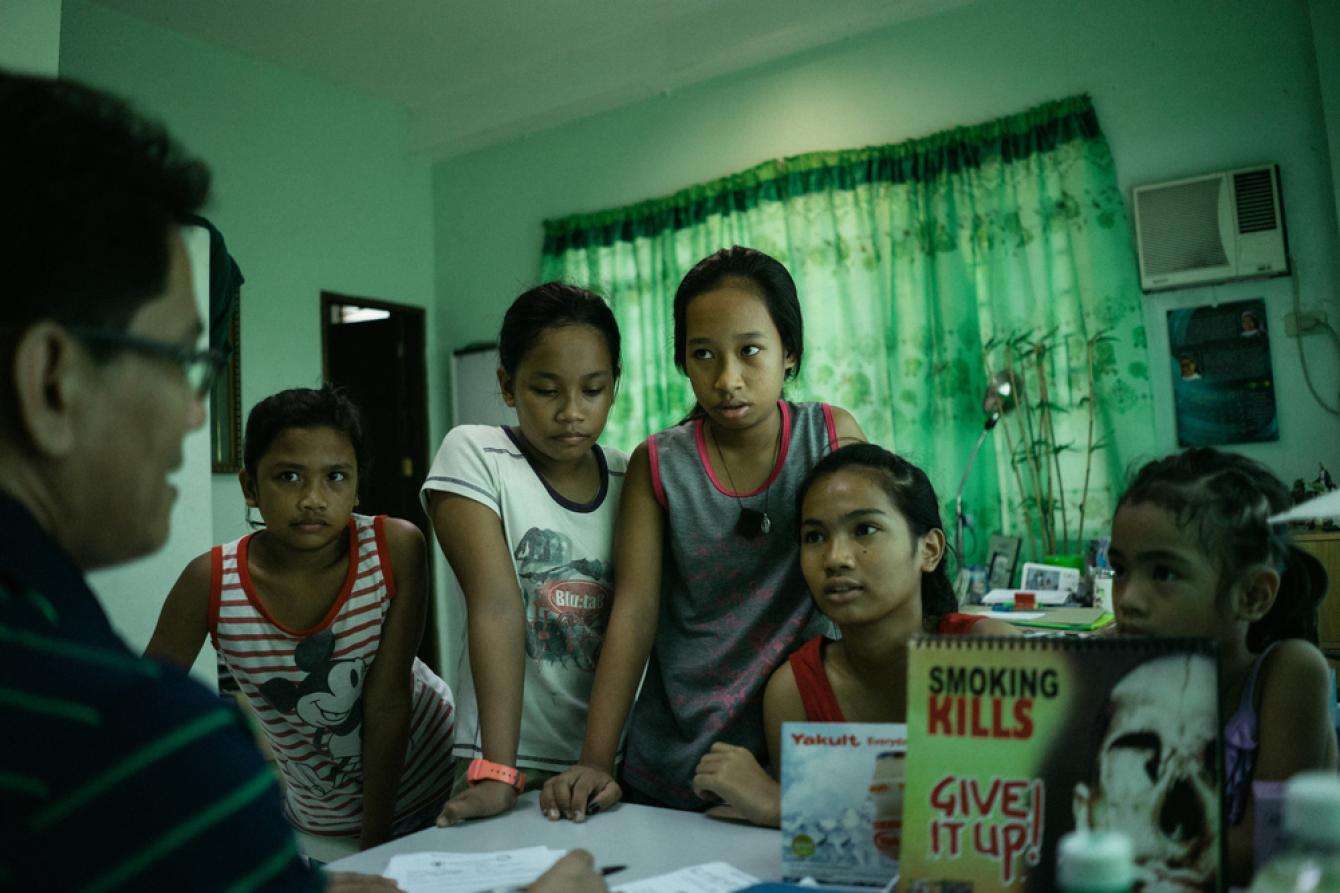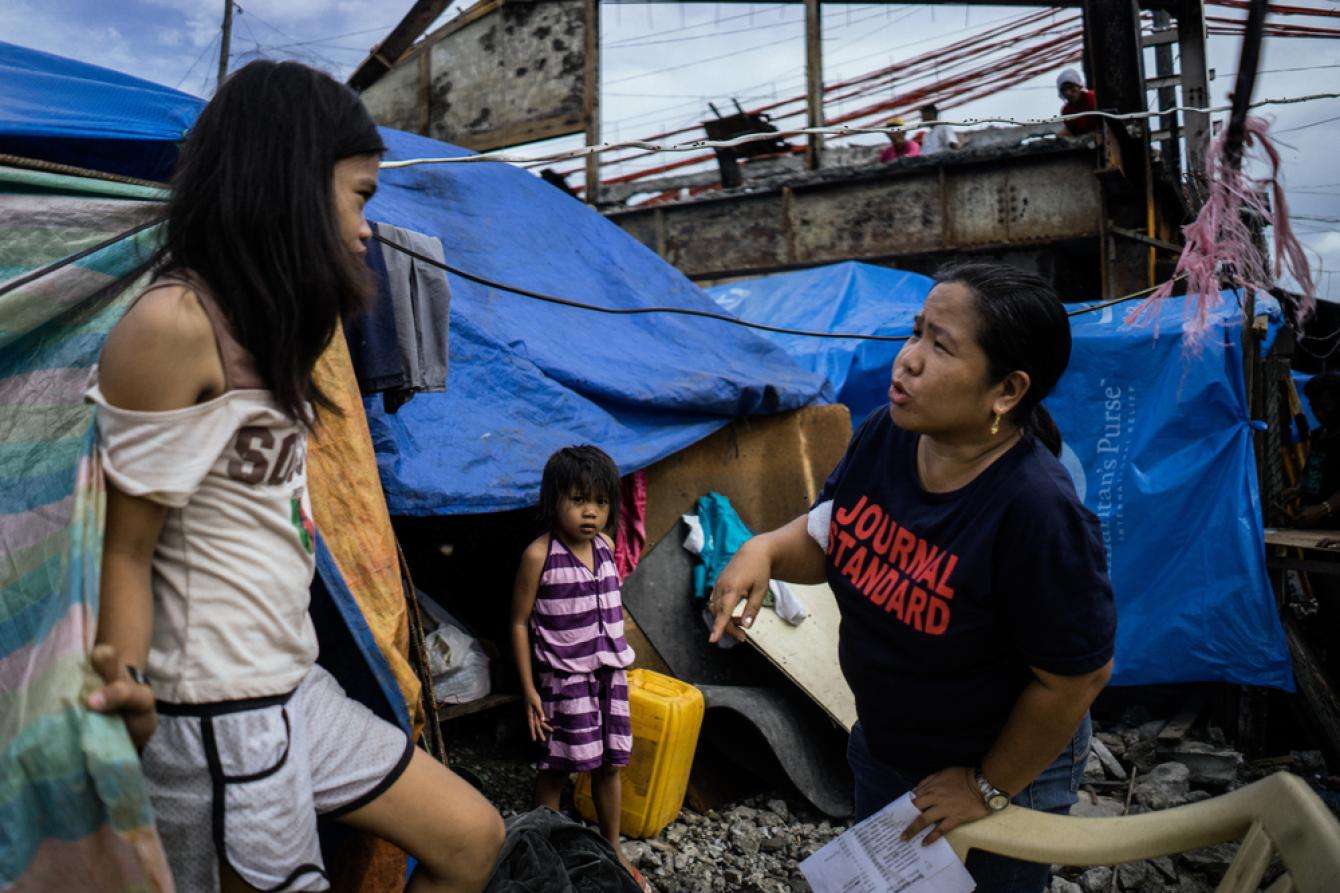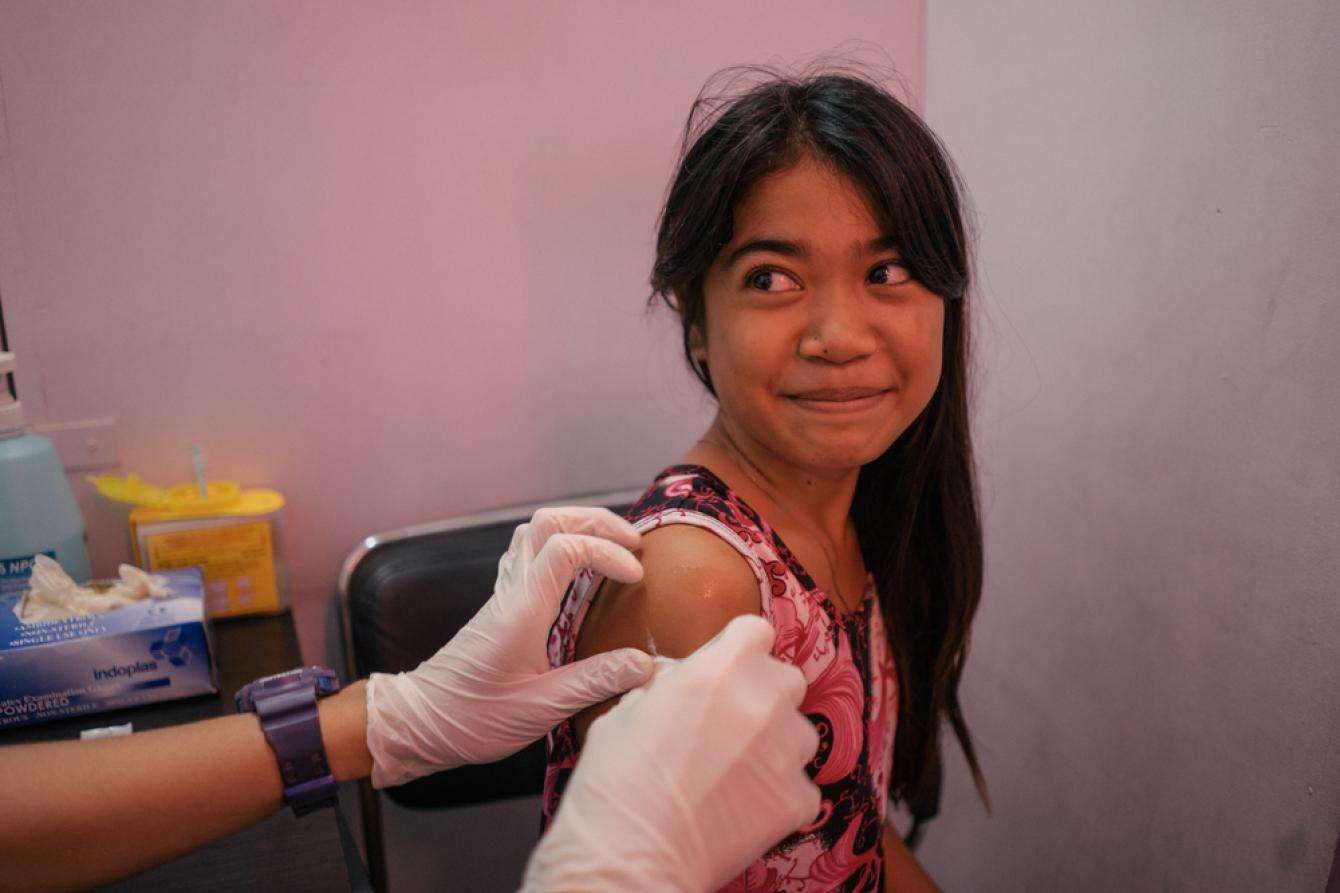In this chaotic corner of the city, MSF launched a massive effort to vaccinate more than 25,000 young girls against the human papillomavirus (HPV), one of the main causes of cervical cancer. Cervical cancer is preventable, detectable, and treatable at early stages, yet it remains the leading cause of cancer related deaths in low- and middle-income countries. In the Philippines, cervical cancer kills 12 women every day.
Women and girls in the Tondo slums are trapped in Manila’s shadow. They generally cannot afford to pay for health services in the capital and yet are not covered by the government’s cervical cancer prevention initiatives offered in some of the country’s poorest regions.
To address this gap, MSF worked with Likhaan, a local women’s health organization, and Manila City health services to conduct a major HPV vaccination campaign last year aimed at reaching girls between the ages of 9 and 13 years old. Teams administered the first dose of the vaccine to thousands of girls in February, and then had to find them again to follow up with the necessary second dose six months later.
In partnership with Likhaan, MSF carried out a largescale information campaign and community outreach effort to encourage young girls to come back for their second vaccine dose. They went door to door, and sent text messages to remind families about the second dose. The results were remarkable: 90 percent of the girls received the second dose, far exceeding expectations.

The World Health Organization recommends vaccinating all girls aged 9 –14 against HPV to reduce the risk of cervical cancer. Yet significant challenges remain, including a hesitancy to vaccinate young girls against a sexually transmitted disease like HPV, a perceived lack of urgency since symptoms of infection may take decades to present, and the high cost of the vaccine.
Indeed, price is a barrier for scaling up HPV vaccine in a number of countries around the world. For the Philippines project, Merck charged MSF around $14 per dose—so $28 for the two doses needed to vaccinate each young girl. That’s the same price it charges the government of the Philippines, which is doing a phased introduction of the vaccine in some of the poorest provinces rather than a nationwide rollout, in part due to the high cost. There is also currently an HPV vaccine shortage, which poses an additional concern.

Women in low- and middle-income countries account for 87 percent of all deaths from cervical cancer— yet only 5 percent of women in these regions have ever been screened for the disease. MSF also works with Likhaan through a facility and a mobile clinic to provide free, comprehensive family planning and reproductive health services, including screenings for cervical cancer.
In and around Tondo, teams screened more than 1,200 women between January and September 2017 using a method by which the cervix is swabbed with diluted vinegar (acetic acid) to test for signs of abnormal tissue.

This simple, low-tech, three-minute procedure is much cheaper than a pap smear and about as effective. Women who test positive for precancerous cells during the screening are treated during the same visit with cryotherapy. Patients suspected of having a more advanced stage of cancer are referred to a local hospital for further testing and treatment. This multi-pronged battle against cervical cancer in Tondo is working to protect thousands of women and girls, and it proves that countless more lives can be saved.





